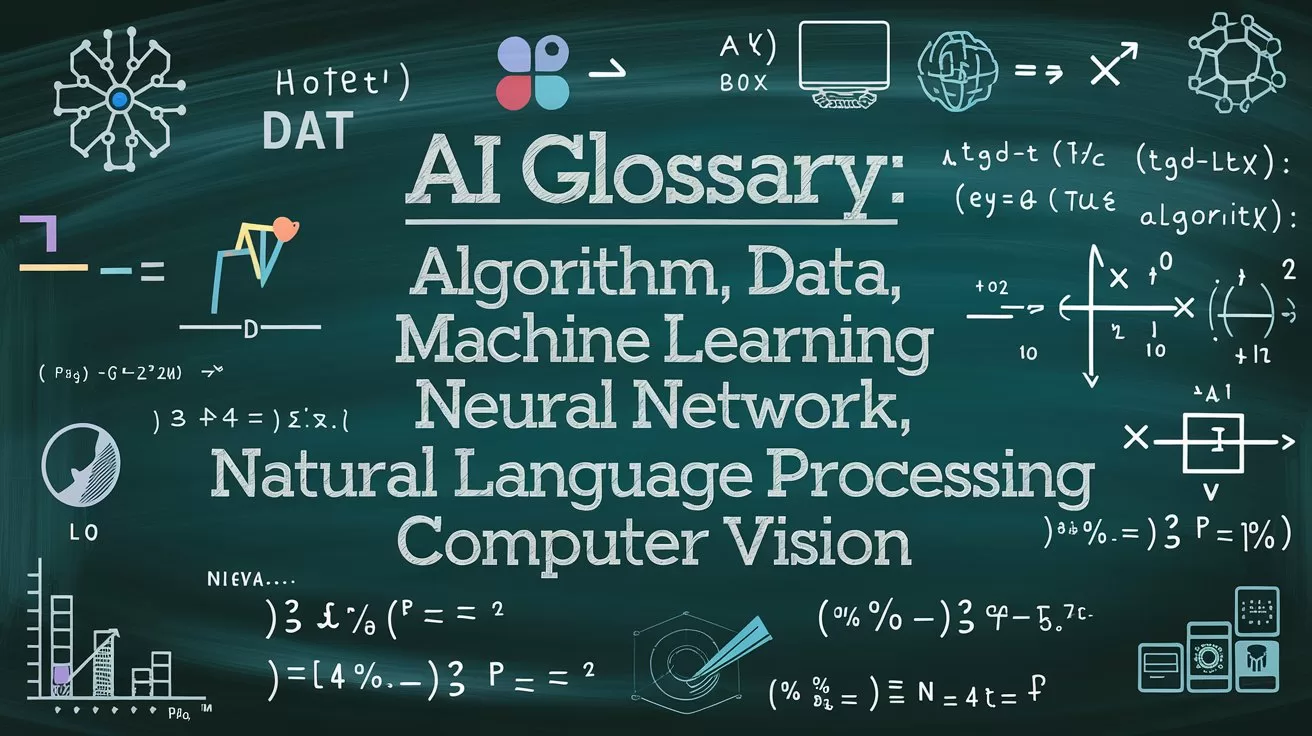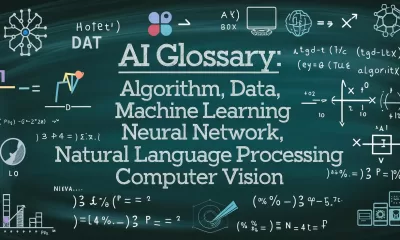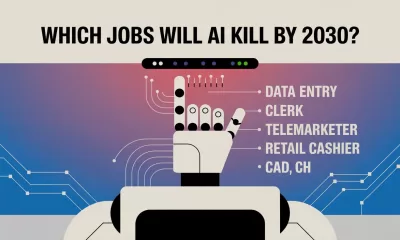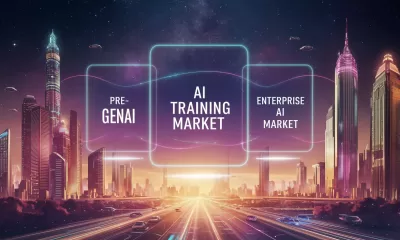Learning
Andrej Karpathy Launches Eureka Labs
Eureka Labs, an AI-native education platform, aims to revolutionise education with AI teaching assistants and AI courses.
Published
9 months agoon
By
AIinAsia
TL;DR:
- Andrej Karpathy, former head of AI at Tesla and researcher at OpenAI, launches Eureka Labs, an AI-native education platform.
- Eureka Labs aims to create AI teaching assistants to guide students through course materials.
- The first product will be an AI course, LLM101n, helping students train their own AI.
Andrej Karpathy, a prominent figure in the world of artificial intelligence (AI), is set to revolutionise education with his new startup, Eureka Labs. The AI-native education platform aims to leverage recent progress in generative AI to create AI teaching assistants that can guide students through course materials.
AI Assistants in the Classroom
Eureka Labs envisions AI assistants or personalities that would work alongside human teachers, enabling “anyone to learn anything.” While the teachers would still design the course material, they would be supported by AI assistants. Although the startup has not yet built or tested the efficacy of integrating AI assistants into the classroom, studies such as one conducted at Georgia State University suggest that AI teaching assistants can help improve student grades.
The First Product: LLM101n
Despite the ambitious plans for AI teaching assistants, Eureka Labs’ first product will be an AI course, LLM101n. This undergraduate-level class will help students train their own AI, a smaller version of the AI teaching assistant that Eureka Labs hopes to build and scale. The course materials will be available online, with both digital and physical cohorts of students going through the materials together.
Building an AI Storyteller
The link for the AI course leads to a GitHub repository, hinting at a different type of course. Instead of “How to build an AI assistant,” the link leads to a how-to for building a “Storyteller AI Large Language Model (LLM).” The class promises to teach students how to “build everything end-to-end from basics to a functioning web app similar to ChatGPT, from scratch in Python, C and CUDA, and with minimal computer science prerequisites.”
Karpathy’s Journey
Eureka Labs is the culmination of Karpathy’s passion for AI and education over the last two decades. He taught deep learning for computer vision at Stanford University until 2015, when he left to co-found OpenAI. Karpathy then moved to Tesla to head up the automaker’s AI team, leading the computer vision team of Tesla Autopilot. After leaving Tesla in 2022, Karpathy returned to OpenAI, where he led a small team related to ChatGPT. Despite stepping down from his role at OpenAI in February, Karpathy continues to be an educator, leading an online course called Neural Networks: Zero to Hero and running a YouTube channel where he posts lectures on LLMs and AI.
The Future of Eureka Labs
The future of Eureka Labs remains somewhat unclear. It is unknown whether Karpathy has self-funded the startup or received backing from investors. Additionally, the startup’s business model has not been disclosed. However, with Karpathy’s extensive experience and passion for AI and education, Eureka Labs is certainly one to watch in the world of AI-powered education.
Comment and Share
What do you think about the potential of AI in education? Would you be interested in taking a course like LLM101n to train your own AI? Share your thoughts in the comments below and don’t forget to subscribe for updates on AI and AGI developments.
You may also like:
- Masterclass: Crafting Effective ChatGPT Prompts in Education in 2024
- Unleash Your Potential with IBM’s Free AI Fundamentals Course
- Revolutionising Education: 5 Powerful AI Prompts for Teachers in Asia
- To learn more about Eureka Labs tap here.
Author
Discover more from AIinASIA
Subscribe to get the latest posts sent to your email.
You may like
-


AI Glossary: All the Terms You Need to Know
-


How ARTC is Leading the Charge in AI and Manufacturing
-


Where Can You Apply Generative vs. Analytical AI Effectively?
-


Adrian’s Arena: AI in 2024 – Key Lessons and Bold Predictions for 2025
-


The Race is On: AI Gets Real, Slow and Steady Wins the Race
-


Amazon’s Nova Set to Revolutionise AI in Asia?
Learning
Beginner’s Guide to Using Sora AI Video
This friendly guide covers features and tips to help you transform simple text prompts into visually stunning videos while using Sora AI.
Published
2 months agoon
February 14, 2025By
AIinAsia
Hello, lovely readers! If you’ve ever dreamt of creating lively, imaginative videos straight from simple text prompts, then Sora AI is about to become your new best friend. Developed by OpenAI, the Sora AI text-to-video generator lets you transform words into dynamic video content. But before you dive in, there are a few tricks of the trade that’ll help you get the most out of this cutting-edge tool.
Table of Contents
- What Is Sora AI?
- Getting Started with Sora AI
- Crafting Effective Prompts
- Advanced Features of Sora AI
- Limitations of Sora AI
- Key Differences: Original Sora vs. Sora Turbo
- Incorporating Personal Assets
- General Guidelines for All Prompts
- Category-Specific Tips
- Prompt Refinement Checklist
- Real-World Applications of Sora AI
- Conclusion & Next Steps
What Is Sora AI?
Picture this: a magical AI tool that can generate videos from simple text descriptions, courtesy of OpenAI. Much like text-to-image generators (e.g., DALL·E or MidJourney), Sora AI uses a diffusion model to take your prompt—something like “A cat playing the piano on a moonlit rooftop”—and transform it into a short video clip.
- Creative Storytelling: Sora excels at conjuring cinematic or whimsical visuals.
- Cinematic Effects: You can try out film noir, 3D animation, or even a painterly vibe.
- Animation of Still Images: Animate a static photo (say, your favourite landmark) and watch it come to life!
Do keep in mind that Sora does have its quirks:
- Human Imagery Restrictions: They’re quite cautious about privacy and ethics.
- Occasional Inconsistencies: Some videos end up looking a bit wonky—think odd proportions or peculiar motion.
Getting Started with Sora AI
1. Accessing Sora
- Head over to Sora’s official website and sign in with your OpenAI login.
- If you’re in a region where Sora’s not yet available, a VPN might come in handy.
- Choose your plan: free or paid subscription. Premium users enjoy higher resolutions and longer clips.
2. Familiarising Yourself with the Interface
- Prompting Window: The space where you type your imaginative descriptions.
- Storyboard: A timeline-like tool for building multi-scene videos.
- Blend Editor: Lets you merge and transition between multiple clips.
- Remix Tool: Tweak or reinterpret older videos with fresh prompts.
3. Setting Up Video Parameters
- Aspect Ratio: 16:9 for widescreen, 1:1 for social media squares—take your pick!
- Resolution: Going for 1080p uses more credits but looks crisp.
- Video Length: Some plans allow up to 60 seconds.
Crafting Effective Prompts
A brilliant video is only as good as the prompt you feed Sora. Here’s what works:
- Use Clear and Concise Language
- Avoid baffling jargon.
- Example: “A futuristic cityscape at night with glowing neon signs, flying cars, and a robotic figure on a rooftop.”
- Incorporate Visual Styles
- You can say “watercolour,” “stop motion,” “film noir”—Sora will adapt.
- Example: “A black-and-white film noir scene of a detective under a flickering streetlight in the pouring rain.”
- Add Camera Techniques
- Want slow motion or a panoramic sweep? Just mention it.
- Example: “A slow-motion close-up of a flower blooming in a sunny meadow.”
- Set the Mood
- Describe lighting, weather, and emotional vibes to guide the model.
- Example: “A cosy living room at dusk, with warm lighting and light rain tapping on the window.”
Advanced Features of Sora AI
Sora AI comes packed with a few extra goodies:
- Storyboard Tool
- Perfect for plotting a mini-film. Arrange scenes before generating.
- Blend Editor
- Seamlessly merge multiple video segments.
- Remix Existing Videos
- Revisit or alter older clips with new prompts or styles.
- Looping Content
- Create endless loops for social media or eye-catching GIFs.
- Image-to-Video Conversion
- Turn static images into snazzy animated clips.
- Video Extension
- Add extra frames to lengthen an existing clip.
- Text-, Image-, and Video-to-Video Inputs (Sora Turbo)
- More ways to feed Sora your creative ideas.
- Remix, Re-Cut, and Blend Tools
- Remix: Swap or update elements in an already-generated clip.
- Re-Cut: Fine-tune specific parts of the video.
- Blend: Melt different objects or scenes together for unique transitions.
Limitations of Sora AI
Like any AI tool, Sora isn’t perfect. Here are the main caveats:
- Physical Accuracy
- Expect the occasional floating chair or bizarre object movement.
- Continuity and Object Permanence
- Longer sequences can sometimes have items popping in and out randomly.
- Video Duration Caps
- Even if you pay for Pro, you might be limited to under 60 seconds.
- Resolution Constraints
- 1080p is your limit for now.
- Performance and Queue Times
- At peak hours, you may find yourself twiddling your thumbs while Sora processes.
- Ethical & Moderation Limits
- You’ll be stopped if you try to generate something too controversial or featuring humans.
- Lack of Fine-Grained Control
- Beyond your text prompt, micromanaging details is tricky.
Key Differences: Original Sora vs. Sora Turbo
There’s the original Sora and the shiny upgraded version, Sora Turbo. Here’s a quick rundown:
- Speed and Efficiency
- Sora Turbo is a proper sprinter, generating multiple clips at once.
- Video Quality and Duration
- Original Sora could handle up to 1 minute, whereas Turbo caps each clip at about 20 seconds (though you can merge them later).
- New Features and Customisation
- Tools like Remix, Re-Cut, Loop, and a fancier Storyboard.
- Input Methods
- Turbo accepts text, images, and even video-to-video prompts.
- Accessibility
- Both are available if you’re on OpenAI Plus or Pro, but usage limits differ.
Incorporating Personal Assets
Want to insert your own pictures or short clips? No problem:
- Media Upload
- Upload images or mini videos by clicking the “+” or “Upload” button.
- Customisation
- Blend your media with AI-generated visuals, or add transitions and visual effects.
- Privacy Settings
- If you don’t fancy sharing your personal content, just disable “Publish to Explore”.
General Guidelines for All Prompts
- Brevity: Keep it under 120 words—short and sweet!
- Specificity: Focus on one or two main ideas.
- Imagery: Paint a clear mental picture for the AI.
- Avoid Sensitive Content: Don’t poke the moderation bear.
- Build Complexity Slowly: If you want something intricate, iterate step by step.
Category-Specific Tips
- Sequence Prompts
- Works: Clear transitions or progressions (e.g., “A knight travelling across a desert, discovering a hidden oasis”).
- Doesn’t Work: Muddled, overly abstract sequences.
- Example: “An epic duel between a Balrog and a Paladin Platypus in a desert world.”
- Human-Focused Prompts
- Works: Humorous or relatable actions (e.g., “A mime crossing a marathon finish line”).
- Doesn’t Work: Anything too philosophical or jam-packed with details.
- Example: “A man strolling through a snowstorm, wearing a helmet made of raw meat.”
- Animal-Focused Prompts
- Works: Fun, vibrant scenarios (e.g., “Cats dressed as wizards facing camera and casting spells”).
- Doesn’t Work: Animals performing too many abstract or contradictory actions at once.
- Example: “A sabre-toothed tiger padding along a glowing riverbank in a prehistoric forest.”
- Figure-Focused Prompts
- Works: Distinctive, stylised scenes (e.g., “A weathered robot scavenging in an abandoned city”).
- Doesn’t Work: Mashing too many cultural icons into a single prompt.
- Example: “A superhero cameo reminiscent of anime, delivering a massive punch that shakes the earth.”
- Location-Focused Prompts
- Works: Captivating environmental descriptions (e.g., “Drone footage of ancient tribes on a mountain at sunset”).
- Doesn’t Work: Overdoing the details so that the setting becomes cluttered.
- Example: “A neon-drenched cityscape welcoming the year 2078, fireworks included.”
Prompt Refinement Checklist
- Clarity: Is your description straightforward and easy to follow?
- Engagement: Does your prompt conjure a strong mental image or storyline?
- Focus: Avoid cramming 10 different big ideas into one prompt.
- Tone: Pick a vibe—playful, cinematic, dramatic—and stick to it.
- Content Sensitivity: Steer clear of copyrighted figures or explicit subject matter.
Real-World Applications of Sora AI
- Social Media: Short, snappy clips for Instagram, TikTok, or YouTube Shorts.
- Storytelling: Quick teasers or imaginative sketches for your next big idea.
- Education: Bring tutorials or lessons to life with short explainers.
- Marketing: Spice up ad campaigns with unique, AI-generated flair.
Conclusion & Next Steps
All in all, Sora AI is a splendid tool for spinning text into visual gold—especially if you love creative, short-form storytelling. It’s not flawless, mind you: longer or more complex prompts can trip it up. But as a starting point for playful, cinematic, or downright quirky videos, it’s in a league of its own.
For a more professional setting—like detailed brand adverts or longer educational videos—Sora might need a bit more polish to handle intricacy. Still, it’s well worth a try if you’re eager to push the boundaries of AI-generated content.
Happy creating, folks!
Disclaimer: This guide blends community wisdom and publicly available resources. Use at your own discretion, and have fun exploring the wild world of Sora AI!
You may also like:
- What Is Sora AI?
- Kling: A Chinese AI Video Model Outshining Sora
- You can also access Sora AI by tapping here (paid for service, not available in all countries yet)
Author
Discover more from AIinASIA
Subscribe to get the latest posts sent to your email.
Learning
AI Glossary: All the Terms You Need to Know
A comprehensive AI Glossary, packed with must-know terms and definitions to keep you ahead in the world of artificial intelligence.
Published
2 months agoon
February 11, 2025By
AIinAsia
Last Updated: 2025-02-11
Get Started
Artificial Intelligence is shaking things up all over the place, and Asia’s bang in the middle of it with top-notch AI research, development, and innovation. In this friendly AI Glossary, you’ll find everything from the real basics to the seriously advanced—brilliant for getting a handle on AI and finding your way through this constantly expanding world.
How to Use: Feel free to hop straight to a letter in the table below or simply scroll away at your leisure. Each entry includes a handy difficulty level, a quick definition, everyday context, and links to related terms.
Table of Contents (tap a letter to jump right there)
A | B | C | D | E | F | G | H | I | J | K | L | M | N | O | P | Q | R | S | T | U | V | W | X | Y | Z
~ A ~
AI (Artificial Intelligence)
Level: 🟢 Beginner
Definition: The field of computer science dedicated to creating machines or software that can perform tasks requiring human-like intelligence (e.g., problem-solving, learning).
Context: Encompasses various subfields like Machine Learning, NLP, and Robotics.
See Also: AGI, Machine Learning, Deep Learning
AGI (Artificial General Intelligence)
Level: 🔴 Advanced
Definition: A still-hypothetical form of AI with the ability to understand, learn, and apply knowledge across a broad range of tasks at a level comparable to humans.
Context: Considered the “holy grail” of AI research; raises significant ethical, societal, and philosophical questions.
See Also: AI, Ethics
Accuracy
Level: 🟢 Beginner
Definition: The proportion of correct predictions made by a model out of all predictions.
Context: Commonly used in classification; may be misleading on imbalanced datasets.
See Also: Precision, Recall
Accuracy
Activation Function
Level: 🟡 Intermediate
Definition: A mathematical function that determines the output of a neuron in a neural network, introducing non-linearity.
Context: Common types include ReLU, Sigmoid, and Tanh; essential for Deep Learning.
See Also: Neural Network, Deep Learning
Active Learning
Level: 🟡 Intermediate
Definition: An AI strategy that smartly mixes supervised and unsupervised learning, but only shouts for human help when it really needs it.
Context: Cuts down on repetitive labelling tasks by focusing human effort where it matters most, making the whole learning process a bit less of a slog.
See Also: Supervised Learning, Unsupervised Learning
Adversarial Attack
Level: 🔴 Advanced
Definition: Methods to deceive AI models (especially neural networks) by subtly altering inputs to cause incorrect outputs or classifications.
Context: Important in security-sensitive AI applications like biometric authentication.
See Also: Robustness, GAN
Algorithm
Level: 🟢 Beginner
Definition: A set of rules or steps for solving a problem or performing a computation.
Context: In AI, algorithms govern how models learn from data.
See Also: Model, Machine Learning
AutoML (Automated Machine Learning)
Level: 🟡 Intermediate
Definition: Tools and frameworks that automate the ML pipeline, including feature engineering, model selection, and hyperparameter tuning.
Context: Democratizes AI by reducing the expertise required for building effective models.
See Also: Hyperparameter Optimization, NAS
~ B ~
Backpropagation
Level: 🟡 Intermediate
Definition: An algorithm for training neural networks by updating weights in reverse from the output layer to the input layer.
Context: Essential to Deep Learning; works in tandem with Gradient Descent.
See Also: Gradient Descent, Neural Network
Bayesian Network
Level: 🔴 Advanced
Definition: A probabilistic model using a directed acyclic graph to represent variables and their conditional dependencies.
Context: Useful for uncertainty modeling and inference in complex domains.
See Also: Probabilistic Models
Bias
Level: 🟢 Beginner
Definition: Systematic errors in model predictions due to skewed data, flawed assumptions, or societal inequities mirrored in the training set.
Context: Can lead to discriminatory outcomes in areas like hiring, lending, or healthcare.
See Also: Fairness, Ethics
Big Data
Level: 🟢 Beginner
Definition: Extremely large and complex datasets that require specialized methods to store, process, and analyze.
Context: Underpins many AI and ML advancements by providing ample training data.
See Also: Data Mining, Data Science
~ C ~
Character.AI
Level: 🤖 Chatbot
Definition: A platform where you can chat with AI “characters” that have been trained to role-play as famous figures, fictional personas, or even brand-new personalities you dream up.
Context: Great for imaginative fun or storytelling—just watch out for those moments when the AI might spin you a tall tale!
Try It: Character.ai/
See Also: Prompt, Chatbot
Chatbot
Level: 🟢 Beginner
Definition: An AI-driven software application that simulates human conversation, often via text or voice interfaces.
Context: Commonly used in customer service, marketing, and information retrieval.
See Also: Conversational AI, Transformer
ChatSonic (by Writesonic)
Level: 🤖 Chatbot
Definition: A GPT-powered chatbot that helps you write blogs, emails, or social posts in a jiffy—think of it as your personal writing sidekick.
Context: Comes with real-time web browsing built in, so it can pull in updated facts and figures instead of relying on pre-trained data alone.
Try It: Writesonic Chat
See Also: Prompt, Chatbot
Claude (by Anthropic)
Level: 🤖 Chatbot
Definition: A conversational AI assistant from the folks at Anthropic—imagine ChatGPT’s clever sibling, but with a huge focus on dodging harmful or dodgy content.
Context: Delivers context-rich responses while aiming to curb “hallucinations.”
Try It: Claude AI
See Also: Prompt, Chatbot
Classification
Level: 🟢 Beginner
Definition: A supervised learning task where the model predicts a discrete category (e.g., spam vs. not spam).
Context: Measured by Accuracy, Precision, Recall, or F1-score.
See Also: Logistic Regression, Model
Clustering
Level: 🟡 Intermediate
Definition: An unsupervised learning method grouping similar data points together without pre-labeled categories.
Context: Useful in customer segmentation, anomaly detection, and data exploration.
See Also: K-Means, Unsupervised Learning
Computer Vision
Level: 🟡 Intermediate
Definition: A field of AI that enables machines to interpret and understand visual data, like images and videos.
Context: Powers facial recognition, self-driving cars, and medical image analysis.
See Also: Neural Network, YOLO
Copilot (formerly Bing Chat)
Level: 🤖 Chatbot
Definition: Microsoft’s AI-powered assistant, formerly known as Bing Chat, now built right into various Microsoft apps to offer real-time info, creative suggestions, and Q&A.
Context: Think of it as your on-the-spot AI helper—answering questions, brainstorming ideas, and even debugging code inside your favourite Microsoft products.
Try It: Copilot
See Also: Prompt, Chatbot
Conversational AI
Level: 🟡 Intermediate
Definition: AI systems designed to interact with humans via natural language, often combining speech recognition, NLP, and dialogue management.
Context: Used in virtual assistants (e.g., Alexa, Siri) and advanced customer support bots.
See Also: Chatbot, NLP
~ D ~
Data Augmentation
Level: 🟡 Intermediate
Definition: Techniques to increase the diversity of the training dataset (e.g., flipping images, adding noise) without collecting new data.
Context: Improves model robustness, especially in Computer Vision or Speech Recognition.
See Also: Data Mining
Level: 🖼️ Image Generation
Definition: An AI tool that conjures up images from text prompts—anything you can describe, DALL-E tries to illustrate.
Context: Great for quick concept art, quirky designs, or just having a laugh imagining “otters in outer space.”
Try It: Dall-e-3
See Also: Generative AI, Prompt
Data Mining
Level: 🟢 Beginner
Definition: The process of discovering patterns and insights in large datasets using methods at the intersection of machine learning and statistics.
Context: Often a precursor to model building in AI projects.
See Also: Big Data, Data Science
Data Science
Level: 🟢 Beginner
Definition: An interdisciplinary field that uses scientific methods, processes, and algorithms to extract knowledge from data.
Context: Data scientists often employ AI/ML techniques for predictive analytics.
See Also: Machine Learning, Big Data
Dataset
Level: 🟢 Beginner
Definition: A collection of data points—like text, images, or numbers—used to train and test AI models.
Context: Think of it as the “study material” for AI. High-quality, well-structured datasets help models learn more accurately.
See Also: Training, Data Augmentation
Deep Learning
Level: 🟡 Intermediate
Definition: A subset of ML that leverages neural networks with multiple layers to model complex patterns in data.
Context: Drives major AI breakthroughs in image recognition, NLP, and more.
See Also: Neural Network, Backpropagation
DeepSeek
Level: 🤖 Chatbot
Definition: An advanced AI search assistant that blends deep language smarts with search capabilities, aiming to dig up precise info faster than you can say “query.”
Context: Great for in-depth research tasks, though it can still slip up with made-up details now and then.
Try It: DeepSeek
See Also: Prompt, Chatbot
Differential Privacy
Level: 🔴 Advanced
Definition: A mathematical framework that adds noise to datasets or outputs to protect individual data points while allowing aggregate analysis.
Context: Critical for compliance with regulations (e.g., GDPR) and safeguarding sensitive data.
See Also: Privacy, Federated Learning
~ E ~
Edge AI
Level: 🟡 Intermediate
Definition: Running AI algorithms locally on edge devices (e.g., smartphones, IoT sensors) rather than centralized servers.
Context: Reduces latency, saves bandwidth, and often enhances privacy.
See Also: Edge Computing, TinyML
Edge Computing
Level: 🟢 Beginner
Definition: Processing data near the source (e.g., IoT devices) instead of sending it all to the cloud.
Context: Improves response times and data handling efficiency.
See Also: Edge AI, IoT
Ensemble Learning
Level: 🟡 Intermediate
Definition: A technique that combines multiple models to improve overall predictive performance.
Context: Methods include Bagging, Boosting, and Stacking.
See Also: Random Forest, Gradient Descent
Level: 🟢 Beginner
Definition: One complete pass through the entire training dataset by an AI model.
Context: If you go over your dataset multiple times (multiple epochs), your model might learn patterns more thoroughly—unless it overfits.
See Also: Overfitting, Training
Ethics
Level: 🟢 Beginner
Definition: Moral principles guiding AI’s design and deployment, emphasizing transparency, fairness, and accountability.
Context: Especially relevant in fields like healthcare, finance, or autonomous vehicles where AI decisions have critical impact.
See Also: Fairness, Bias
~ F ~
Fairness
Level: 🟢 Beginner
Definition: Ensuring AI outcomes do not discriminate or harm certain groups, especially vulnerable or historically disadvantaged populations.
Context: Closely tied to bias mitigation and ethical AI guidelines.
See Also: Bias, Ethics
Federated Learning
Level: 🔴 Advanced
Definition: A decentralized ML approach where devices train local models and share only aggregated updates, not raw data.
Context: Maintains data privacy and is suitable for large-scale, distributed systems (smartphones, IoT).
See Also: Edge AI, Differential Privacy
Feature Engineering
Level: 🟡 Intermediate
Definition: The process of selecting, creating, or transforming input variables (features) to improve model performance.
Context: Vital in traditional ML workflows; neural networks often learn features automatically.
See Also: Model
Few-Shot Learning
Level: 🔴 Advanced
Definition: Techniques enabling models to generalize from only a small number of labeled examples.
Context: Crucial in scenarios where data collection is expensive or limited.
See Also: Zero-Shot Learning, Meta-Learning
Fine-Tuning
Level: 🟡 Intermediate
Definition: Taking a model that’s already been trained on a broad dataset and giving it extra training on more specific data, so it gets really good at a narrower task.
Context: Common with large language models—why start from scratch when you can build on existing knowledge?
See Also: Transfer Learning, LLM
F1-Score
Level: 🟡 Intermediate
Definition: The harmonic mean of precision and recall, offering a single metric when dealing with class imbalance.
Context: Often used in classification to balance false positives and false negatives.
See Also: Precision, Recall
~ G ~
GAN (Generative Adversarial Network)
Level: 🔴 Advanced
Definition: A neural network framework with two models—Generator and Discriminator—competing to create realistic data.
Context: Generates synthetic images, text, or other data; used in art, game design, and data augmentation.
See Also: Adversarial Attack, Unsupervised Learning
Gemini (by Google)
Level: 🤖 Chatbot
Definition: Google’s next-generation AI model, taking over where Bard left off—like your genius mate who’s absorbed Google’s entire knowledge base and can chat on any topic.
Context: Touted as a major leap forward in conversational AI, backed by Google’s vast machine learning resources.
Try It: Google Gemini
See Also: Prompt, Chatbot
Generative AI
Generative AI
Level: 🟡 Intermediate
Definition: AI that doesn’t just analyse data, but actually creates brand-new content—like text, images, and even music.
Context: Powering everything from AI art apps to chatbots, it’s shaking up industries with fresh ways to produce, well, just about anything.
See Also: GAN, LLM, Transformer
GPT (Generative Pre-Trained Transformer)
Level: 🔴 Advanced
Definition: A type of large language model (LLM) that harnesses the Transformer architecture to generate remarkably coherent text—famously exemplified by OpenAI’s GPT series.
Context: Known for its massive scale and wide-ranging capabilities, from drafting emails to crafting code. GPT models underscore just how far AI can go in churning out human-like content.
See Also: Large Language Model (LLM), Transformer
GPU (Graphics Processing Unit)
Level: 🟢 Beginner
Definition: A specialised chip originally made for rendering graphics, but brilliant at handling the parallel computations needed for AI tasks.
Context: Speeds up training large models—basically, the horsepower behind modern AI breakthroughs.
See Also: Edge AI, Deep Learning
Gradient Descent
Level: 🟡 Intermediate
Definition: An optimization algorithm that adjusts model parameters to minimize a cost (loss) function by following the gradient.
Context: Integral to training most neural networks, with variants like Stochastic and Mini-Batch.
See Also: Backpropagation, Loss Function
Grok (by xAI)
Level: 🤖 Chatbot
Definition: A conversational assistant from Elon Musk’s xAI venture, aiming to bring a fresh twist to the AI chatbot scene—still in its early days but garnering heaps of attention.
Context: Positioned as a direct rival to heavyweights like ChatGPT, with an eye on open, unfiltered conversations.
Try It: X ai
See Also: Prompt, Chatbot
~ H ~
Hallucination
Level: 🟡 Intermediate
Definition: When an AI system churns out information that sounds perfectly credible but is actually made-up—essentially presenting fiction as fact.
Context: Often pops up in large language models, highlighting the need for verification and fact-checking, especially in high-stakes environments.
See Also: XAI, Bias
Heuristic
Level: 🟢 Beginner
Definition: A rule-of-thumb or approximate method for quickly finding a solution when exact algorithms are impractical.
Context: Commonly used in AI search problems (e.g., pathfinding, game AI).
See Also: Algorithm
HuggingChat (by Hugging Face)
Level: 🤖 Chatbot
Definition: An open-source chatbot platform run by Hugging Face, letting you converse with cutting-edge AI models without the usual paywalls or sign-ups.
Context: Ideal for users who want a free, community-driven environment to experiment with AI text generation.
Try It: Hugging Face Chat
See Also: Prompt, Chatbot
Hyperparameter
Level: 🟡 Intermediate
Definition: A parameter set before training (e.g., learning rate, number of layers) that controls the training process.
Context: Fine-tuning hyperparameters is crucial for model performance.
See Also: Hyperparameter Optimization
Hyperparameter Optimization
Level: 🔴 Advanced
Definition: Techniques (like grid search, random search, Bayesian optimization) for finding the best hyperparameter configurations.
Context: Can drastically improve model accuracy and speed.
See Also: AutoML, Gradient Descent
~ I ~
Ideogram
Level: 🖼️ Image Generation
Definition: A text-to-image generator that claims to handle even the trickiest text-based prompts, focusing on clearer typography in AI-generated designs.
Context: Useful if you need stylised words and graphics in your AI images, rather than just abstract scenes.
Try It: https://ideogram.ai/
See Also: Generative AI, Prompt
Inference
Level: 🟢 Beginner
Definition: The process of using a trained model to make predictions on new, unseen data.
Context: Often optimized separately from training for speed, especially in production.
See Also: Model
IoT (Internet of Things)
Level: 🟢 Beginner
Definition: A network of connected devices (e.g., sensors, appliances) that collect and exchange data.
Context: AI at the edge (Edge AI) can process IoT data in real time for applications like smart homes, industrial monitoring.
See Also: Edge Computing
~ J ~
Jupyter Notebook
Level: 🟢 Beginner
Definition: An open-source web tool that allows you to combine live code, visualizations, and narrative text in a single document.
Context: Widely used in data science and AI for exploratory analysis and prototyping.
See Also: Python, Data Science
~ K ~
K-Means
Level: 🟢 Beginner
Definition: A popular clustering algorithm partitioning data into K distinct clusters by minimizing within-cluster variance.
Context: Often a go-to algorithm for quick segmentation tasks.
See Also: Clustering, Unsupervised Learning
Knowledge Graph
Level: 🟡 Intermediate
Definition: A structure of entities (nodes) and their relationships (edges) representing real-world facts.
Context: Used by search engines (e.g., Google) for better data connectivity.
See Also: Ontology, Semantic Web
~ L ~
Large Language Model (LLM)
Level: 🟡 Intermediate
Definition: A neural network (often with billions of parameters) trained on massive text corpora to understand and generate language.
Context: Powers advanced NLP tasks, including chatbots, summarization, and translation.
See Also: Transformer
Learning Rate
Level: 🟡 Intermediate
Definition: A hyperparameter controlling how much model weights update during each training step.
Context: Too large can cause divergence; too small can slow learning.
See Also: Gradient Descent
Logistic Regression
Level: 🟢 Beginner
Definition: A statistical model often used for binary classification (e.g., predicting yes/no outcomes).
Context: Known for its simplicity and interpretability; often a baseline for more complex models.
See Also: Classification
Loss Function
Level: 🟡 Intermediate
Definition: A measure of how far a model’s predictions deviate from actual targets.
Context: Guides the learning process via Gradient Descent.
See Also: Training
~ M ~
Machine Learning (ML)
Level: 🟢 Beginner
Definition: A subset of AI that allows systems to learn from data and make predictions or decisions with minimal human intervention.
Context: Encompasses supervised, unsupervised, and reinforcement learning.
See Also: Deep Learning, Data Science
Midjourney
Level: 🖼️ Image Generation
Definition: A Discord-based AI art generator famous for producing jaw-dropping, highly detailed images—just type in your prompt, and watch the magic happen.
Context: Hugely popular among digital artists and casual doodlers alike; known for an imaginative, painterly aesthetic.
Try It: https://midjourney.com/
See Also: Generative AI, Prompt
Meta AI
Level: 🤖 Chatbot
Definition: Meta’s (formerly Facebook) AI chatbot, geared towards a broad user base across Messenger, Instagram, and more—like a digital mate that can help with queries or just have a natter.
Context: Part of Meta’s larger ambition to weave AI assistants into everyday social interactions, not just standalone apps.
Try It: Meta AI
Meta-Learning
Level: 🔴 Advanced
Definition: “Learning to learn,” where a model leverages knowledge from previous tasks to learn new tasks more efficiently.
Context: Useful in Few-Shot or Zero-Shot Learning scenarios.
See Also: Few-Shot Learning, Transfer Learning
Mistral
Level: 🤖 Chatbot
Definition: A newly developed AI model focussed on open-source collaboration, designed to deliver top-notch results without ballooning into a massive, unwieldy giant.
Context: Perfect for those who like to tinker—ideal if you want to tweak or fine-tune a chatbot under the hood.
Try It: Le Chat
See Also: Prompt, Chatbot
Model
Level: 🟢 Beginner
Definition: A mathematical representation of a real-world process, trained from data to perform specific tasks (e.g., classification).
Context: Types include neural networks, decision trees, and linear models.
See Also: Training, Inference
Multi-Task Learning
Level: 🔴 Advanced
Definition: A learning paradigm in which a single model is trained to handle multiple tasks simultaneously.
Context: Can improve performance by leveraging shared representations across tasks.
See Also: Transfer Learning
My AI (by Snapchat)
Level: 🤖 Chatbot
Definition: Snapchat’s built-in AI buddy, ready to chat about your day, suggest filters, or even join group convos for a bit of fun banter.
Context: It’s integrated right into Snapchat, so no separate app needed—handy for on-the-fly chats and quick tips.
Try It: Snapchat My AI
See Also: Prompt, Chatbot
~ N ~
NAS (Neural Architecture Search)
Level: 🔴 Advanced
Definition: Automated methods to discover optimal neural network architectures, often outperforming manually designed networks.
Context: Very computationally intensive but can yield state-of-the-art results.
See Also: AutoML, Hyperparameter Optimization
Natural Language Processing (NLP)
Level: 🟢 Beginner
Definition: A branch of AI focusing on the interaction between computers and human language.
Context: Tasks include sentiment analysis, machine translation, and text summarization.
See Also: Transformer, Tokenization
Neural Network
Level: 🟡 Intermediate
Definition: A computational model inspired by biological neurons, consisting of layers that learn hierarchical representations of data.
Context: The core of Deep Learning.
See Also: Deep Learning, Activation Function
NLP Pipeline
Level: 🟢 Beginner
Definition: The sequence of steps (e.g., tokenization, part-of-speech tagging) applied to text data in NLP.
Context: Ensures consistent processing of language data prior to modeling.
See Also: NLP
~ O ~
Ontology
Level: 🟡 Intermediate
Definition: A formal structure representing concepts within a domain and relationships between them.
Context: Used in semantic web, knowledge graphs, and advanced AI reasoning.
See Also: Knowledge Graph, Semantic Web
Overfitting
Level: 🟢 Beginner
Definition: When a model learns the training data’s noise or details too well, harming generalization to new data.
Context: Common solutions include regularization, cross-validation, or early stopping.
See Also: Underfitting, Regularization
~ P ~
Pi (by Inflection AI)
Level: 🤖 Chatbot
Definition: A personal AI companion from Inflection AI that aims to offer a friendly, chat-based approach to everything from scheduling reminders to life advice.
Context: Designed for one-on-one help, focusing on emotional understanding as well as factual answers—sort of a cross between a notepad and a confidant.
Try It: https://heypi.com/
See Also: Prompt, Chatbot
Poe (by Quora)
Level: 🤖 Chatbot
Definition: A chatbot aggregator where you can switch between multiple AI models (including GPT variants) in one place—like a sampler platter of AI engines.
Context: Perfect if you’re curious to test the quirks of different chatbots without hopping between loads of sites.
Try It: https://poe.com/
See Also: Prompt, Chatbot
Precision
Level: 🟡 Intermediate
Definition: The fraction of predicted positives that are truly positive.
Context: Important when false positives are costly (e.g., medical diagnoses).
See Also: Recall, F1-Score
Privacy
Level: 🟢 Beginner
Definition: Protecting personal or sensitive data from unauthorized access or disclosure, often through techniques like encryption or differential privacy.
Context: Critical in healthcare, finance, and any application handling sensitive user data.
See Also: Differential Privacy, Federated Learning
Probabilistic Models
Level: 🟡 Intermediate
Definition: Models that incorporate probability distributions to handle uncertainty (e.g., Bayesian networks).
Context: Useful in domains like finance, weather forecasting, and medical diagnostics where data is noisy or incomplete.
See Also: Bayesian Network
Prompt
Level: 🟢 Beginner
Definition: A piece of text (or sometimes an image or other input) given to an AI model to guide its response or output.
Context: In chatbots like ChatGPT, the prompt is essentially your question or statement—framing it clearly can help the AI produce a more accurate or creative answer.
See Also: Prompt Engineering, Generative AI
Prompt Engineering
Level: 🟡 Intermediate
Definition: Crafting clever inputs or questions so an AI model (especially a language model) gives you the most useful answers.
Context: Hugely important in conversational AI—getting the prompt right can be the difference between a spot-on reply and a confusing jumble.
See Also: GPT, Generative AI
Python
Level: 🟢 Beginner
Definition: A high-level programming language widely used in AI/ML due to its readability and extensive libraries (NumPy, Pandas, PyTorch, TensorFlow).
Context: De facto standard for AI prototyping and production.
See Also: Jupyter Notebook
~ Q ~
Q-Learning
Level: 🔴 Advanced
Definition: A reinforcement learning technique that learns a quality function (Q) for actions in given states.
Context: Popular in game AI and robotics for sequential decision-making tasks.
See Also: Reinforcement Learning
Quantum Computing
Level: 🔴 Advanced
Definition: Computing based on quantum-mechanical phenomena, enabling potentially vast speedups for certain algorithms.
Context: Could revolutionize AI for optimization, cryptography, and complex simulations.
See Also: Algorithm
~ R ~
Random Forest
Level: 🟡 Intermediate
Definition: An ensemble method combining many decision trees to improve prediction accuracy and reduce overfitting.
Context: A robust, commonly used baseline model.
See Also: Ensemble Learning
Recall
Level: 🟡 Intermediate
Definition: The fraction of actual positives that are correctly identified by the model.
Context: Crucial when missing positives is costly (e.g., disease detection).
See Also: Precision, F1-Score
Recommender System
Level: 🟡 Intermediate
Definition: Algorithms that predict user preferences to suggest relevant items (e.g., movies, products).
Context: Widely used in e-commerce, streaming services, and social media.
See Also: Machine Learning
Regularization
Level: 🟡 Intermediate
Definition: Techniques (L1, L2, Dropout) to prevent overfitting by penalizing complex models.
Context: Helps models generalize better to unseen data.
See Also: Overfitting, Loss Function
Reinforcement Learning
Level: 🔴 Advanced
Definition: A learning paradigm where an agent learns to perform actions in an environment to maximize a cumulative reward.
Context: Used in robotics, gaming (AlphaGo), and self-driving vehicles.
See Also: Q-Learning
Replika
Level: 🤖 Chatbot
Definition: A virtual companion app where you can chat and bond with an AI “friend” that learns your interests, personality, and conversation style over time.
Context: Emphasises emotional support and personal connection, more than just fetching facts or drafting content.
Try It: Replika
See Also: Prompt, Chatbot
Robustness
Level: 🟡 Intermediate
Definition: The ability of an AI model to maintain performance under adversarial inputs or variations in data.
Context: Critical for safety-critical applications like autonomous driving or healthcare.
See Also: Adversarial Attack
~ S ~
Semantic Web
Level: 🟡 Intermediate
Definition: A framework for sharing data across the web in a machine-readable format, enabling better data interoperability.
Context: Facilitates AI systems in understanding and linking information.
See Also: Ontology, Knowledge Graph
Stable Diffusion
Level: 🖼️ Image Generation
Definition: An open-source image model that translates text prompts into high-quality visuals, all without relying on proprietary code.
Context: Perfect for DIY enthusiasts who want to run AI art on their own hardware, or customise the model under the hood.
Try It: Stability AI
See Also: Generative AI, Prompt
Supervised Learning
Level: 🟢 Beginner
Definition: A type of ML where the model learns from labeled data (input-output pairs).
Context: Includes tasks like classification and regression.
See Also: Unsupervised Learning, Reinforcement Learning
Support Vector Machine (SVM)
Level: 🟡 Intermediate
Definition: A supervised learning algorithm finding the optimal hyperplane to separate different classes in high-dimensional space.
Context: Effective for medium-sized, well-structured datasets.
See Also: Classification
~ T ~
Test Set
Level: 🟢 Beginner
Definition: A final set of data used to evaluate the performance of a fully trained model.
Context: Essential for unbiased performance assessment.
See Also: Validation Set, Training
TinyML
Level: 🔴 Advanced
Definition: Deploying ML models on ultra-low-power microcontrollers, enabling AI on embedded devices.
Context: Useful for battery-powered IoT sensors, wearables, and remote monitoring.
See Also: Edge AI, Federated Learning
Tokenization
Level: 🟢 Beginner
Definition: Splitting text into smaller units (tokens), such as words or subwords, for NLP tasks.
Context: A foundational step in any text processing pipeline.
See Also: NLP Pipeline
Training
Level: 🟢 Beginner
Definition: The process of feeding data into a model and adjusting parameters to minimize a loss function.
Context: Can be computationally intensive, especially for deep networks.
See Also: Inference, Loss Function
Transfer Learning
Level: 🟡 Intermediate
Definition: Using knowledge gained from one task to improve learning on another, related task.
Context: Common in computer vision (pretrained ImageNet models) and NLP (pretrained Transformers).
See Also: Multi-Task Learning, Few-Shot Learning
Transformer
Level: 🔴 Advanced
Definition: A neural network architecture that uses self-attention mechanisms and excels in NLP tasks.
Context: Forms the basis of many state-of-the-art language models (e.g., BERT, GPT).
See Also: LLM, NLP
~ U ~
Underfitting
Level: 🟢 Beginner
Definition: When a model fails to capture underlying trends in the data, leading to low accuracy even on training data.
Context: Can be addressed by using more complex models or training longer.
See Also: Overfitting, Regularization
Unsupervised Learning
Level: 🟢 Beginner
Definition: A learning approach without labeled data, where the model aims to find hidden patterns or groupings.
Context: Clustering and dimensionality reduction are popular unsupervised methods.
See Also: Clustering, GAN
~ V ~
Validation Set
Level: 🟢 Beginner
Definition: A subset of data used during model training to tune hyperparameters and avoid overfitting.
Context: Helps identify optimal model settings before final testing.
See Also: Test Set, Training
Vector Embedding
Level: 🟡 Intermediate
Definition: A numeric representation of data (words, images) in a lower-dimensional space, capturing semantic or structural similarities.
Context: Commonly used in NLP (Word2Vec, GloVe) and recommender systems.
See Also: Tokenization, NLP
~ W ~
Weight
Level: 🟡 Intermediate
Definition: A parameter in a neural network that transforms input data within each neuron’s computation.
Context: Adjusted during backpropagation to minimize loss.
See Also: Backpropagation, Neural Network
Word2Vec
Level: 🟡 Intermediate
Definition: A method for learning vector embeddings of words, capturing semantic and syntactic similarities.
Context: Pioneered large-scale adoption of embedding-based NLP approaches.
See Also: Vector Embedding, NLP
~ X ~
XAI (Explainable AI)
Level: 🔴 Advanced
Definition: Techniques and frameworks aimed at making AI models more transparent and interpretable.
Context: Crucial in regulated industries (finance, healthcare) and for building public trust in AI systems.
See Also: Ethics, Bias
~ Y ~
YOLO (You Only Look Once)
Level: 🟡 Intermediate
Definition: A real-time object detection algorithm known for speed and accuracy in identifying objects in images.
Context: Widely applied in surveillance, autonomous driving, and robotics.
See Also: Computer Vision, Deep Learning
~ Z ~
Zero-Shot Learning
Level: 🔴 Advanced
Definition: A technique enabling models to classify or perform tasks on categories they’ve never been explicitly trained on.
Context: Relies on semantic knowledge transfer; valuable in rapidly changing domains.
See Also: Few-Shot Learning, Transfer Learning
Bookmark This Page
This AI Glossary is designed to be a living resource, adaptable as new technologies and methodologies emerge—especially in the vibrant AI ecosystems across Asia. If you notice a missing term or have an updated definition, let us know in the comments or via our form. Bookmark this page and check back for regular updates!
You may also like:
Author
Discover more from AIinASIA
Subscribe to get the latest posts sent to your email.
Learning
Spot the Fakes! Learn How to Build AI Models (Step-by-Step Guide)
Traditional modeling is becoming obsolete. Discover how to build AI models from start to finish for cost savings, perfect consistency, and future-proof e-commerce.
Published
3 months agoon
February 4, 2025By
AIinAsia
TL;DR
- Full AI Model Creation Process: Learn how to build your own AI models from zero to launch.
- Cost Efficiency: See how AI reduces expensive resources in fashion and beyond.
- Perfect Consistency: Discover how AI delivers flawless results in clothing and branding applications.
- Kling’s 1.6 Video Model: Explore a cutting-edge example of AI-driven design.
- E-Commerce & Virtual Try-Ons: Experience how AI is reshaping online shopping.
- Influencer Marketing & Custom Tees: See how AI amplifies content creation and personalisation.
- Future of AI: Get insights into how AI will revolutionise content creation and entrepreneurship.
The AI Revolution in Model Creation
AI models aren’t just for tech giants anymore. With the right workflows, anyone can harness the power of AI to streamline processes, create unique content, and minimise costs. This video walks you through each stage—from setting up data to final deployment—showcasing how to implement AI in real-world scenarios.
Why Watch This Video?
- Comprehensive Walkthrough: Perfect for both beginners and experienced users looking to apply AI to various fields like fashion, marketing, and e-commerce.
- Cost-Saving Strategies: Learn how to eliminate expensive resources—like professional photography sessions—and replace them with AI solutions.
- Enhance User Experience: From virtual try-ons to consistent product images, see how AI improves customer engagement and satisfaction.
- Customisation & Versatility: Whether it’s creating your own T-shirt line or offering AI-powered modelling services, discover unlimited avenues for monetisation.
Video Breakdown (Timestamps)
- 00:00 – Introduction to AI-Powered Fashion Photography
Overview of how AI is reshaping fashion photography and content creation. - 03:01 – Cost Efficiency: Eliminating Expensive Resources
Learn how AI cuts down on the need for costly equipment and studio time. - 06:01 – Achieving Perfect Consistency in Clothing Applications
See how AI ensures consistent results in branding and apparel design. - 09:01 – Exploring Kling’s 1.6 Video Model Features
A deep dive into the innovative features of Kling’s AI-driven video model. - 12:01 – AI in E-Commerce: Virtual Try-On Experiences
Discover how AI is changing online shopping through interactive virtual try-ons. - 15:01 – Influencer Marketing Enhanced by AI
Explore how AI amplifies campaigns, automates tasks, and boosts engagement. - 18:01 – Creating and Customizing T-Shirt Designs with AI
Turn creative ideas into tangible products quickly and efficiently. - 21:01 – Offering AI Modeling Services for E-Commerce
Find out how to package and sell AI-driven modeling solutions to businesses. - 24:01 – Final Thoughts: The Future of AI in Content Creation
Get a glimpse of what lies ahead as AI continues to evolve and disrupt industries.
Ready to see how AI models are taking over the industry? Watch the video below and discover how you can stay ahead of the curve!
Stay tuned for more AI insights and practical tips—your journey into the future of AI-powered content creation starts now!
You may also like:
- AI Influencers: A New Era of Brand Engagement
- Kling: A Chinese AI Video Model Outshining Sora
- The Dark Side of AI Influencers
- Watch: Meet Aitana: The AI Influencer from Spain
- Or visit Kling now by tapping here.
Author
Discover more from AIinASIA
Subscribe to get the latest posts sent to your email.

Playbook: How to Use Ideogram.ai (no design skills required!)

AI Career Guide: Land Your Next Job with Our AI Playbook

Will AI Take Your Job—or Supercharge Your Career?
Trending
-

 Life3 weeks ago
Life3 weeks agoWhich Jobs Will AI Kill by 2030? New WEF Report Reveals All
-

 Life2 weeks ago
Life2 weeks agoAI Career Guide: Land Your Next Job with Our AI Playbook
-

 Business2 weeks ago
Business2 weeks agoWill AI Take Your Job—or Supercharge Your Career?
-

 Tools2 weeks ago
Tools2 weeks agoCan AI Videos Really Boost Your Brand’s Authenticity?
-

 Marketing6 hours ago
Marketing6 hours agoPlaybook: How to Use Ideogram.ai (no design skills required!)
-

 Business3 weeks ago
Business3 weeks agoThe Three AI Markets Shaping Asia’s Future
-

 Life3 weeks ago
Life3 weeks agoWould You Trust Tesla’s Grok AI More Than Your Friends?





























